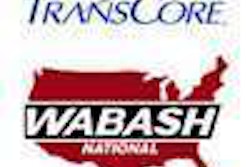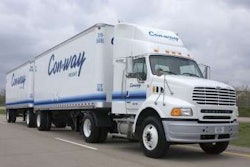In tough times, shippers may try for the moon
Q Several months ago, we responded to a major brewery’s request for bids that contained 30-day payment terms. Last week, we received a letter that said payment terms for all suppliers would be changed to the next 120 days, and unless we accepted the revised terms, our bid would not be considered. What options do we have?
A Just say “No.” You do not have to haul their freight, and you do not have to drink their beer. Since no contract has been awarded, the shipper is not required to award you the traffic based upon the bid you submitted, but likewise it cannot bind you to the terms of your submission and change the credit terms unilaterally unless you acquiesce.
During the days of regulation, payment terms for common carriers were net 15 days, and regulations still support this time limit (see 49 C.F.R. 377). By tariff and contract, most carriers now extend 30-day payment terms, yet giving a shipper 120 days to pay invoices is unreasonable. If you are forced to factor your receivables, your factoring costs alone easily can exceed your profit. Beer sales may be fairly recession-proof, but in my opinion, no vendor can assume an unsecured 120-day credit risk. Carriers are not “too big to fail,” and there will be no TARP bailout for you in the event of shipper insolvency.
While I am aware of no legal prohibition that keeps a shipper from demanding excessive payment terms under the circumstances you outline, I view this request as outrageous. I would be surprised to learn that even in these hard times that any sophisticated credit manager would accept these terms on a take-it-or-leave-it basis.
As I have written before, motor carriers are general unsecured creditors who can ill-afford to be lax in the extension of credit. If anything, the old term “cash and carry” should be a carrier’s credit posture, not the extension of four-month interest-free loans.
Since I received this question, I have heard from two other suppliers for this shipper; one never received a cram-down notice, and the other one just objected and negotiated a more reasonable term.
– Henry Seaton is a transportation lawyer who represents carriers.
Duplicative background checks targeted
The Small Business Administration’s Office of Advocacy added duplicative background checks for commercial truck drivers to its top 10 federal regulations that should be reviewed and reformed. The office of advocacy said the Transportation Security Administration should eliminate the current requirement that a driver who holds a valid Transportation Worker Identification Credential must undergo a duplicative security background check when applying for a hazardous materials endorsement. For more information, go to www.sba.gov/advo.
Two plead guilty to defrauding carriers
Two Southern California men pleaded guilty to federal fraud charges for using a federal Internet site to defraud trucking companies out of at least $2.4 million, the office of the U.S. attorney for the central district of California reported. The men are scheduled to be sentenced on June 29.
Nicholas Lakes, also known as Dmitry Nadezhdin, 35, of Glendale, and Viacheslav Berkovich, 34, of the Los Feliz section of Los Angeles, both pleaded guilty Feb. 24 to computer fraud and mail fraud charges before U.S. District Judge John F. Walter. In plea agreements filed with the court, Lakes and Berkovich admitted that they entered into a scheme to defraud trucking companies and brokers through use of the Internet. They accessed the Federal Motor Carrier Safety Administration’s Safety and Fitness Electronic Records System (SAFER) website in order to register fictitious carrier and brokerage entities, and they then used commercial loadboards to double-broker loads to legitimate trucking companies they never paid.
For example, in January 2008, Lakes and Berkovich accessed the Internet Truckstop website and obtained information about a load being brokered by Dallas-based Stevens Transport. Using the name of Vega Trucking, one of the fictitious companies they had registered on the SAFER website, Lakes and Berkovich agreed with Stevens Transport to transport the load for $3,400. Lakes and Berkovich then illicitly used the name of Barkfelt Transport, a legitimate brokerage, to arrange for RK Trucking to transport the load for $4,000. RK Trucking in fact transported the load, but never got paid for its work. In early February 2008, Lakes and Berkovich received a $3,390 check via the mail from Stevens Transport, which was deposited into an account for Vega Trucking. Berkovich was the account holder for this Bank of America account.
Lakes faces a maximum statutory sentence of 70 years in federal prison, and he has agreed to forfeit his interest in $1.14 million in an investment account. Berkovich faces a maximum sentence of 45 years in prison.
In Brief
U.S. Department of Transportation warned that there has been another round of fraudulent letters – purporting to be issued by USDOT – sent to contractors and potential contractors and requesting they submit company financial information on a release form entitled “Authorization to release financial information.”
David Hernandez was sentenced Feb. 25 by a federal court in Memphis to 20 months in prison for his role in selling bogus freight bills to a factoring company while he served as a manager at a now-defunct trucking company based in Dyersburg, Tenn. Hernandez also faces three years’ probation and more than $310,000 in restitution.
James Hallmon was sentenced in late January by a federal court in Maryland to 21 months in prison and nearly $344,000 in restitution for filing false claims for fuel tax credits in the names of several trucking companies and other affiliated corporations.
Aaron Misulovin pleaded guilty on Feb. 27 in a New Jersey federal court to a variety of charges related to evasion of about $138 million in federal and state motor fuels taxes. Misulovin, who had returned to the United States after nearly 13 years as a fugitive, had operated wholesale fuel distributorship Kings Motor Oils, which had resold through shell entities hundreds of millions of gallons of tax-free home heating oil as diesel fuel for highway use. The taxes collected were distributed among conspirators.
J.J. Keller & Associates(www.jjkeller.com) says its 520-page ADA Compliance Manual is designed to help human resources professionals understand the legal definition of a disability and ensure their company is compliant with the new ADA Amendments Act, which took effect on Jan. 1.










